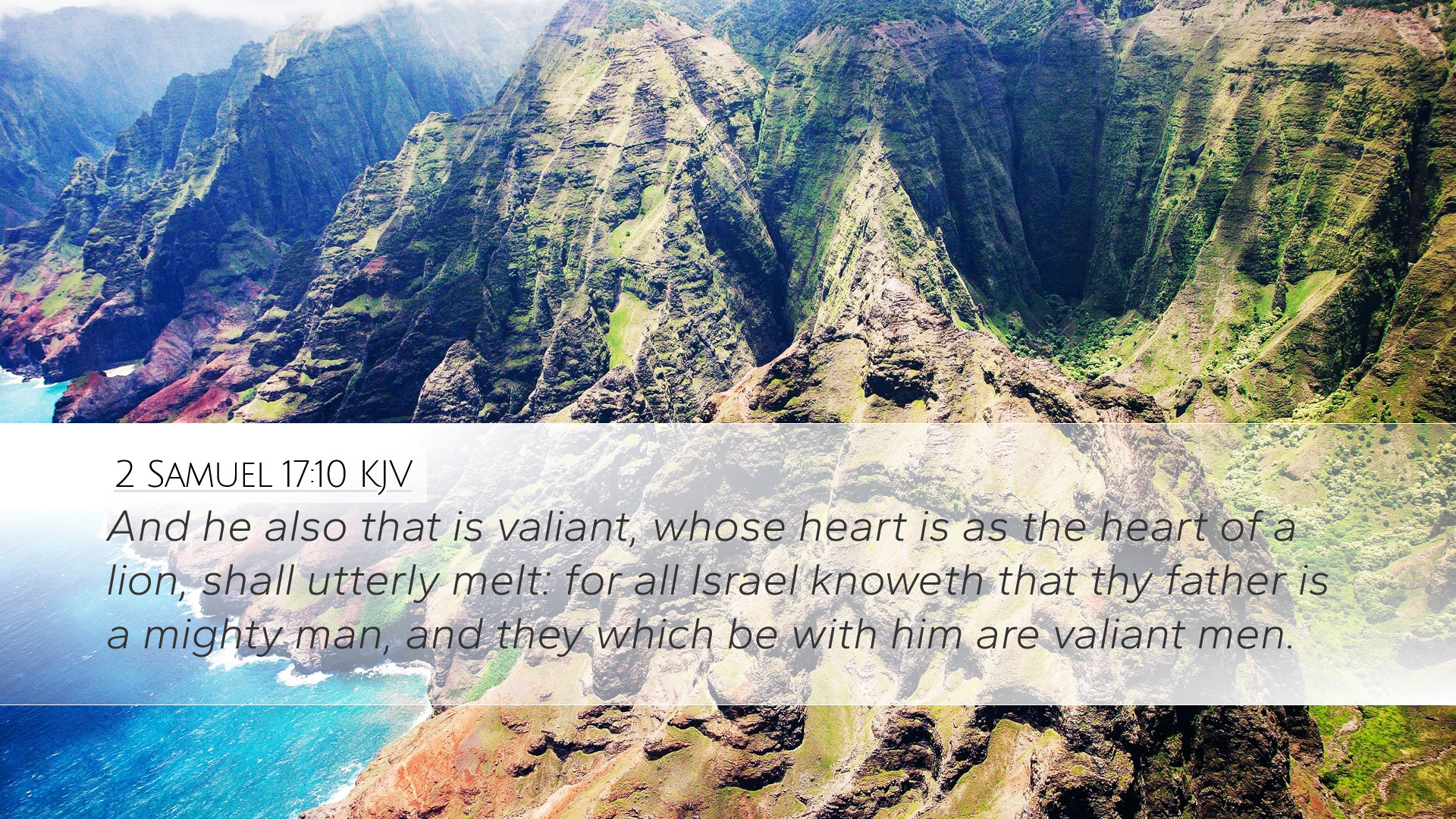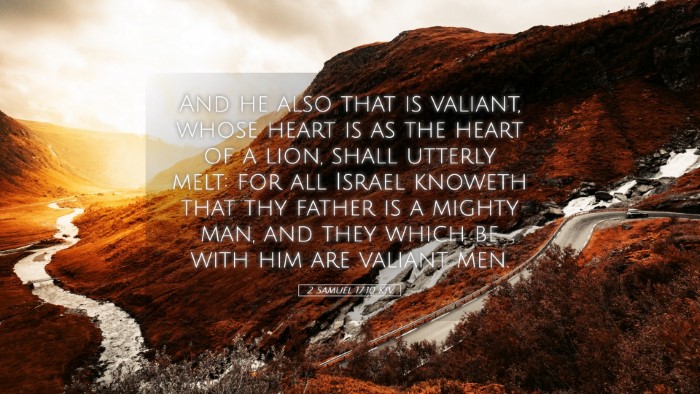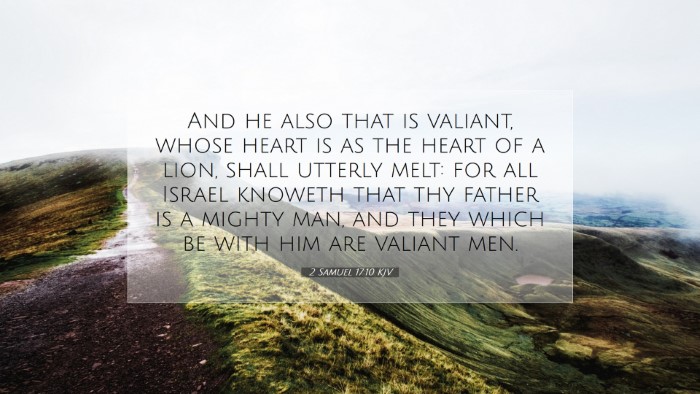2 Samuel 17:10 - Commentary and Insights
Verse: "And he also that is valiant, whose heart is as the heart of a lion, shall utterly melt: for all Israel knoweth that thy father is a mighty man, and they which be with him are valiant men."
Introduction
This verse from 2 Samuel 17:10 highlights the psychological warfare inherent in the conflict surrounding King David and his son Absalom. In the context of the narrative, the verse is an observation regarding the impact of David's reputation upon those loyal to him and their enemies. As we delve into the commentaries of Matthew Henry, Albert Barnes, and Adam Clarke, we will explore the cultural, historical, and theological implications of this profound statement.
Contextual Analysis
The context of this verse is critical. Absalom's rebellion against his father, David, had caused significant unrest in Israel. The phrase "valiant, whose heart is as the heart of a lion" serves not only as a description of the soldiers' bravery but also indicates the fear that David's reputation instills in Absalom's camp.
Historical Background
In this period, leadership and valor were inherently intertwined, with the reputation of a king greatly influencing the morale of his troops. David was not only a king but also viewed as a warrior, renowned for his victories and mighty deeds. Understanding this backdrop is essential for a thorough exegesis of the text.
Matthew Henry's Insights
Matthew Henry provides a rich exposition of this verse, emphasizing the emotional state of both parties involved in the conflict. He notes that the fear expressed by those on Absalom’s side reflects David’s might and the confidence the people had in him.
- The Impact of Reputation: Henry illustrates that Absalom's followers were aware of David's valor, which created a psychological disadvantage for them. The term "melt" indicates a loss of courage and resolve, suggesting that they recognized the futility of their rebellion against someone as esteemed as David.
- Valour and Cowardice: The contrast between being "valiant" and "melting" poignantly presents human nature in conflict. When faced with overwhelming odds or formidable enemies, even the bravest can succumb to fear.
Albert Barnes' Commentary
Albert Barnes adds depth by interpreting the dynamics of military morale. He suggests that the physical prowess of the soldiers was of little consequence when faced with the psychological weight of David's legacy.
- Strength in Leadership: Barnes emphasizes the notion that a leader’s reputation can galvanize or demoralize troops. Understanding that "all Israel knoweth that thy father is a mighty man" illustrates how collective memory can affect real-time morale in warfare.
- Leadership Qualities: He points out the qualities of David as a "mighty man"—not merely in battle but in wisdom and strategy, which combined, reinstates loyalty among his supporters.
Adam Clarke's Perspective
Adam Clarke, known for his scholarly rigor, approaches the text with linguistic and cultural analysis. He expounds on the term "valiant" and discusses its implications for leadership in the ancient world.
- Understanding Valor: Clarke notes that being "valiant" during this time was associated not only with physical strength but also with loyalty and courage. This dual significance enriches our understanding of the soldiers' plight.
- Cultural Dynamics: The context of warfare during David's reign vastly influenced both societal structure and individual identity within Israel. Clarke’s insight into the cultural perception of courage introduces another layer to this conflict narrative.
Theological Implications
Delving deeper into the theological ramifications of 2 Samuel 17:10, the verse speaks volumes about the nature of leadership, the persistence of loyalty, and the profound impact of one's character on others.
- Godly Leadership: Scripture often presents David as a type of Christ—a leader whose heart is aligned with God's heart. This verse symbolically foreshadows the leadership model that Jesus would later exemplify.
- The Fragility of Human Courage: As seen in this text, human efforts can waver. The ensuing 'melting' reflects the inherent fragility of human courage when confronted with historical legacies of strength and power. It speaks to the greater truth of dependence on God’s strength in times of fear.
Conclusion
In summary, 2 Samuel 17:10 serves as a poignant reminder of the powerful impact of leadership and reputation. From the insights gathered through the commentaries of Matthew Henry, Albert Barnes, and Adam Clarke, we see that the fear that paralyzes Absalom’s forces is deeply rooted in the historical and spiritual legacy of King David. For current pastors, students, theologians, and scholars, this verse underscores the significance of moral character in leadership and provides a backdrop against which the integrity of one's actions can be measured.


